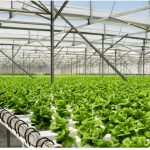Global Construction Sustainable Materials Market
As stated in our extensive report, the Global Construction Sustainable Materials Market accounted for USD 293 Billion in 2022 and is projected to reach a value of USD 595 Billion by 2030.
The global Construction Sustainable Materials market is expected to grow at a significant rate in the coming years. This growth can be attributed to the increasing focus on sustainable construction practices due to growing environmental concerns. Sustainable materials in the construction industry include materials that are recyclable, renewable, energy-efficient, and non-toxic. These materials help in reducing the carbon footprint of the construction sector and have a lower impact on the environment compared to traditional construction materials. With growing awareness of the environmental effect of construction activities, builders and developers are increasingly turning to eco-friendly solutions as a way to reduce their carbon footprint and comply with stricter environmental regulations.
Additionally, government initiatives are also driving the adoption of Construction Sustainable Materials through incentives and subsidies for green building practices. The usage of sustainable materials such as bamboo, recycled steel, and wood treatments without harmful chemicals or additives, among others, can also lead to lower costs in the long term, as they can reduce the need for repairs and replacements over time. Overall, the Construction Sustainable Materials market is expected to see significant growth in the upcoming years, given the increasing demand for sustainable and environmentally friendly construction materials across the globe.
Click To Get a Free Sample On the Research Study

Key Factors Influencing Global Construction Sustainable Materials Market Growth
The growth of the global Construction Sustainable Materials market can be attributable to the following:
- Increasing awareness about the impact of construction activities on the environment has led to an increase in the demand for sustainable materials. Consumers are now more conscious of the need to use eco-friendly materials that have a lower carbon footprint. Governments and environmental agencies have also introduced policies and regulations that encourage the use of sustainable materials, which have further stimulated market growth.
- The cost-effectiveness of sustainable materials has also played a vital role in the growth of the Construction Sustainable Materials market. Though some of these materials may initially have a higher cost, they provide long-term benefits that outweigh their cost. Sustainable materials require less maintenance and have a longer lifespan, thus reducing the overall cost of construction.
- Technological advancements have led to the development of new and innovative sustainable materials that meet the high-performance standards of traditional materials. These advancements have increased the acceptance of sustainable materials among consumers and made them more accessible to the construction industry.
- Rapid urbanization has led to an increase in the construction industry, which in turn, resulted in rising demand for Construction Sustainable Materials. Major construction projects, such as infrastructure development initiatives, have led to a rise in the demand for sustainable materials.
- With sustainable materials being available in a variety of forms and applications, they have found a place in many different construction projects. Sustainable materials are now being used in primary construction structures, finishes, insulation, roofing, and cladding materials, among others, making them versatile products in the industry. This adaptability has added to the widespread acceptance of the products, driving the market growth further.
North America Region to Lead the Market Growth
The market for Construction Sustainable Materials in North America has been experiencing significant growth due to increasing awareness about the environmental impact of construction and the need to reduce carbon emissions. Sustainable materials help to minimize the ecological footprint of construction projects, reduce waste, and promote energy efficiency.
Moreover, the market is driven by factors such as government regulations promoting green building practices, growing consumer demand for Construction Sustainable Materials, and the increasing adoption of sustainable practices by construction companies. Several key players in the Construction Sustainable Materials market in North America include BASF SE, Kingspan Group PLC, LafargeHolcim, and PPG Industries. These companies are actively involved in the development and production of sustainable materials for the construction industry.
Conclusion
The overall Construction Sustainable Materials Market sales have been favorably impacted by increasing awareness about the impact of construction activities on the environment, technological advancements in building materials, and increasing demand for green buildings.
The well-known players of the Global Construction Sustainable Materials Market include BASF SE (Germany), Bauder Ltd. (UK), DuPont (U.S.), Forbo International SA (Switzerland), Interface Inc. (U.S.), Kingspan (Ireland), LafargeHolcim (Switzerland) and others.
![[Market Research Reports] – Research Google News Blog | VMR.Biz](https://www.vmr.biz/wp-content/uploads/2022/12/logo-removebg-preview.png)











